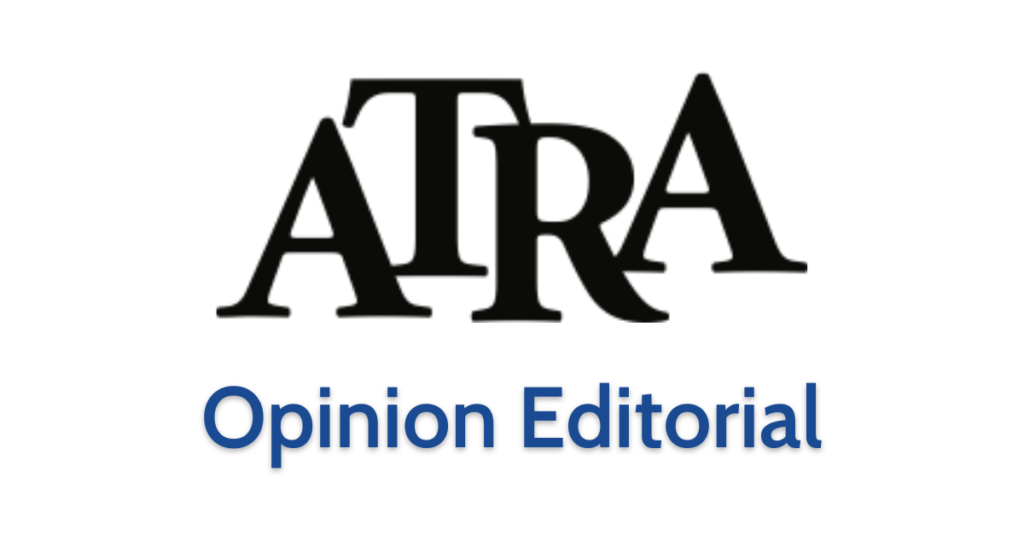
A Time for Choosing at the National Association of Attorneys General
This op-ed was originally published by Real Clear Policy. There’s a growing chorus of criticism against the National Association of Attorneys General (NAAG) for the organization’s perceived political bias and […]
This op-ed was originally published by Real Clear Policy.
There’s a growing chorus of criticism against the National Association of Attorneys General (NAAG) for the organization’s perceived political bias and improper use of taxpayer dollars.
Last week, Montana Attorney General Austin Knudsen (R) threatened legal action against NAAG if it doesn’t return Montana’s share of funds currently withheld by the organization. Earlier this month, state legislators in South Dakota and Mississippi called for their respective state attorneys general to leave NAAG, citing the group’s allocation of taxpayer funds into environmental-, social-, and governance- (ESG) focused investment accounts. Kansas Attorney General Kris Kobach (R), a member of NAAG’s executive committee, sent a similar letter in January to the organization requesting specific details on NAAG’S investments.
These calls come mere months after similar petitions decried NAAG’s apparent shift to the left and corresponding biased practices.
But the problems with NAAG date back many years.
In March 2022, my organization, the American Tort Reform Association, released a report on the troubling issues plaguing NAAG’s operations. We found that the nonprofit’s mission had shifted from its original purpose — managing multistate investigations — to that of a tax-funded advocacy group dedicated to generating lawsuits and massive returns in revenue.
According to its own members, as of September of last year NAAG had roughly $280 million in assets – more than the annual AG budget for many states. The organization accumulated this mass of wealth by keeping state lawsuit settlement funds for itself rather than redistributing them back to the states and taxpayers for whom those funds were intended.
Clearly, these funding practices are of concern to NAAG members as well. Multiple state attorneys general have left the groupwhile 12 signed a letter criticizing the practice funding issue last year.
I noted at the time steps NAAG could take to begin regaining trust. Those included taking money out of NAAG’s bank account and sending it to state treasuries, setting standards for individual AGs when hiring outside counsel on a contingency basis, and implementing a more balanced approach to its educational programs.
But with no indication of course correction in sight, it’s becoming harder for members to defend their continued association with the organization.
NAAG’S focus on manufacturing entrepreneurial litigation undermines our economy, takes resources away from victims, and distorts our legal system.
If things don’t change for NAAG in a hurry, it’s reasonable to think we’ll see more state lawmakers speak out against continued membership with the group.
It’s unfortunate to see an organization with a once-noble mission fall under the weight of partisanship and greed – it seems as though the clock is ticking and the AG group’s image may soon be permanently damaged.
NAAG would be well served to refocus its energy on its primary goal of enhancing efficiency and coordination among state attorneys general, instead of continuing down the path of becoming a partisan lawsuit factory more concerned with profits than justice. Hopefully, they chose wisely.
Tiger Joyce is president of the American Tort Reform Association.
Latest News
View all news
‘Highly Unusual’ Rehearing of Louisiana Case Raises Judicial Independence Concerns
Louisiana Supreme Court Waffles Under Political Pressure, ATRA Brief Urges Court to Stand Strong
America’s Top 9 Worst Judicial Hellholes®
Left unchecked, these jurisdictions will continue dragging down economic growth and undermining justice through rampant lawsuit abuse.
ATRA Commends J&J’s Plan to Resolve Notorious Talc Lawsuits
Claimants Given Opportunity to Vote on Plan; Judge to Reconsider Scientific Validity of Plaintiffs’ Experts
The Lab Whose Junk Science Is Fueling a Frenzy of Litigation
Legitimate consumer protection demands sound science and impartial analysis — not distorted data designed to manufacture lawsuits.
Lawsuit Advertising Frenzy Fuels Georgia’s Litigation Epidemic
Law Firms Spent $168M+ on 2.2M Ads in Georgia
Trial Lawyers’ Dual Grip on Pennsylvania Politics and Public Opinion Revealed in New ATRA Reports
ATRA’s Latest Studies Reveal Financial Influence and Lack of Transparency in Pennsylvania’s Campaign Finance Systems



